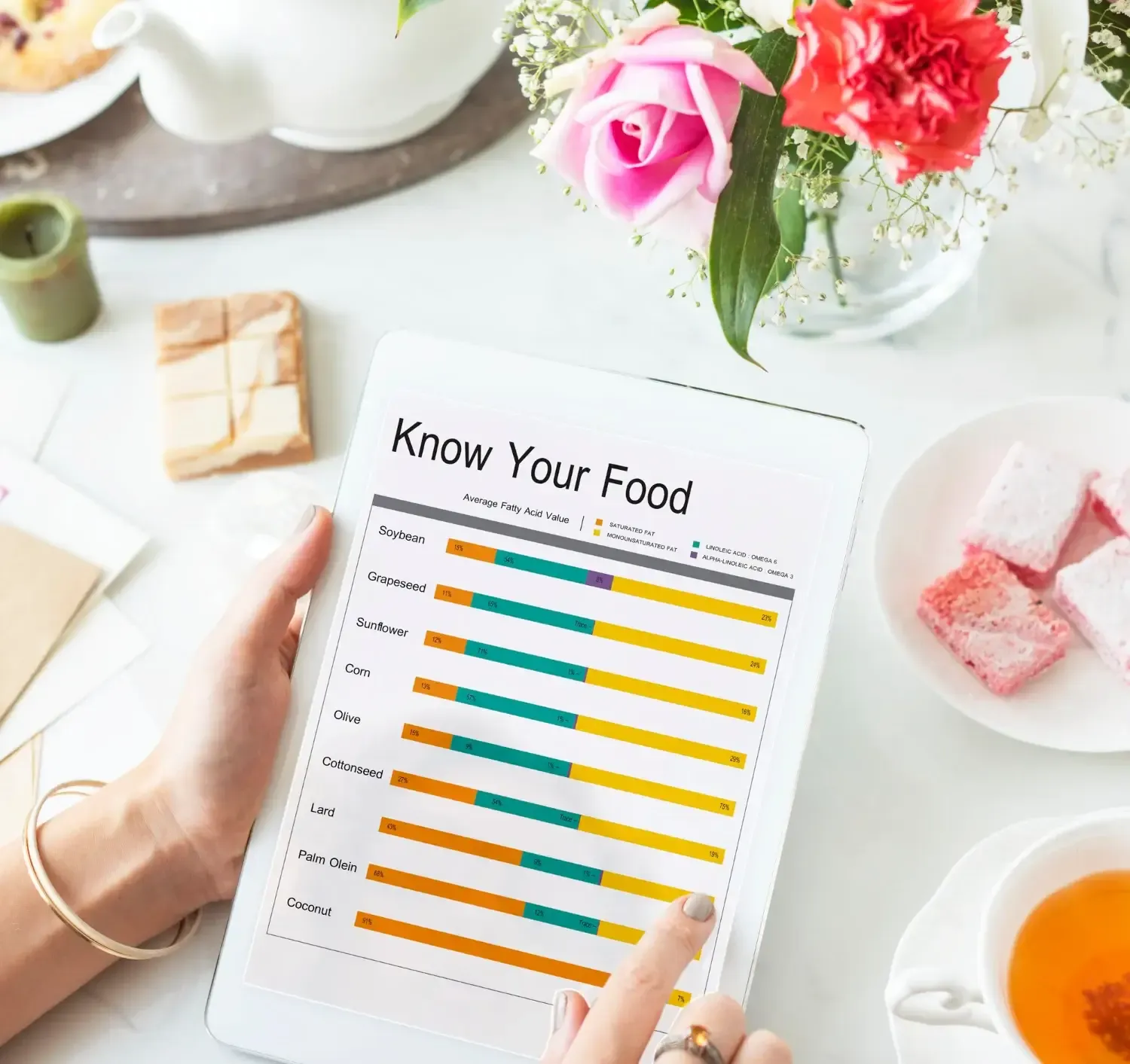Travel-Friendly Foods for People with Digestive Disorders: What to Eat and Avoid

You're ready to explore new parts of the world, but there is only one thing stopping you from embarking on this journey—an upset stomach. Individuals with sensitive guts are especially vulnerable to digestive problems such as bloating, acidity, and diarrhea.
Your gut health is directly linked to the food you eat. Since food has such a huge impact on the digestive tract, being mindful of what you eat while traveling is important. Just by carefully watching your eating habits, you can reduce the risk of developing digestive problems while travelling.
In this blog, we’ll explore safe food options and precautions you should take to experience an enjoyable trip without getting sick.
Challenges of digestive problems while traveling
When you travel, your body goes through a lot—like dealing with new climates and time changes. That can sometimes mess with your digestion.
Here are some frequent travel-related challenges that could affect your gut health:
1. Airplane belly
When you travel by air, the difference in air pressure causes gas to build up in your stomach. This phenomenon is called “airplane belly” (also known as “Jet belly”).
2. Traveller’s diarrhea
As a traveller, you’re more likely to consume contaminated food or water. Bacteria and viruses enter your body in this way, causing diarrhea, abdominal pain, vomiting, and fever.
3. Aggravation of digestive issues
Travelling carries the risk of worsening digestive disorders such as acidity, gastroesophageal reflux disease (GERD), gas, and abdominal pain.
4. Limited access to gut-friendly food
Since you are visiting different locations, your food options will vary wildly. It is unlikely that dishes are prepared only with non-irritating ingredients.
5. Dehydration
Carrying large amounts of water is inconvenient while travelling. That means you will have to rely on public water dispensers or mineral water bottles bought from stores for hydration.
6. Reliance on unhealthy snacks
Bringing packaged snacks is the first choice that comes to mind when planning for trips. However, processed foods, for instance, chips and cookies, contain preservatives that damage the stomach.
Pre-trip digestive health checklist
If you have digestive concerns, consider these five essentials before you hit the road:
1. Check in with your doctor
Share with your doctor any concerns you have regarding your digestive disorder. Discuss travel-related adjustments in your treatment plan. You should take the doctor’s prescription and adequate medications with you on your journey.
2. Pack food
Bringing food that’s light on your stomach will save you from unnecessary stress. Keep gut-friendly foods with you. Having healthy edibles by your side will stop you from buying unhealthy snacks.
3. Prepare emergency backup
Get over-the-counter medications, for example, Imodium, antacids, and famotidine (be sure to ask your doctor for a prescription). In case your digestive disorder symptoms flare up, you will have these medications as support to manage the condition.
4. Plan your meals ahead
Look up the menus of restaurants online that are near your travel destination. In this way, you’ll be aware of available food options, enabling you to plan your meals according to your gut health.
5. Manage your stress
Anxiety is known to trigger digestive issues. The stress hormones lead to excessive acid production in the stomach, damaging it and causing pain. Keep your stress levels in check.
Practice mindfulness meditation, stretching, and exercise. This can help lower your stress levels and thus prevent any possible gut issues.
Travel-friendly foods that may support your gut
Here are some safe food options that can help keep your gut healthy and avoid any digestive issues while you're on your trip:

1. Fruits and nuts
Fruits and nuts are an excellent choice when you're in the mood for some snacks. Being natural and healthy, they are not going to irritate your gut. Consider fruits that are low in fructose, such as:
-
Bananas
-
Berries
-
Avocados
Along with that, keep small packets of nuts containing a mix of:
-
Cashews
-
Almonds
-
Peanuts
-
Pistachios
2. Low-FODMAP options
High-FODMAP foods (Fermentable Oligosaccharides, Disaccharides, Monosaccharides, and Polyols) are responsible for bloating and abdominal discomfort. Before travelling, make a list of low-FODMAP foods that you can get for your trip. The list will also come in handy when you're at your destination and need to buy your meal there.
Some low-FODMAP food options are:
-
Carrots
-
Bell peppers
-
Cucumbers
-
Berries
-
Rice
-
Oats
-
Eggs
-
Potatoes
3. Protein-rich foods
Red meat is associated with an increase in the production of toxins in the gut. Consider avoiding red meat. Instead, go for other protein-rich food alternatives.
To meet your body's need for protein, you can take hard-boiled eggs and tofu with you while travelling. Lean proteins such as chicken, fish, and turkey are also gut-friendly options.
4. Hydration helpers
The most important thing while travelling is to watch your water intake. Water facilitates the digestion of food and its movement through the digestive tract.
To prevent dehydration, keep a water bottle with you all the time. Refill your bottle whenever you spot a water dispenser. Coconut water also helps with hydration. Adding slices of cucumber or lemon to your water will make it more palatable.
5. Probiotic-rich foods
Probiotic foods contain healthy bacteria that support your gut health. They improve digestive functions and prevent infections as well. Some examples of probiotics include yogurt, kefir, and kimchi.
6. Herbal teas
Herbal teas are known to have a soothing effect on the digestive system. They relieve stomach pain, treat acid reflux, and calm down inflammation.
Ginger tea, green tea, and peppermint tea are the most common of herbal drinks. Try whichever you like!
Foods to avoid while travelling
Some foods are heavy on your stomach and may lead to constipation, diarrhea, acidity, pain, and other complications. Here are some foods you should avoid:
1. Spicy or fried foods
Meals rich in spices are a big no for someone with a sensitive stomach. Spicy foods tend to increase acid production in your stomach, resulting in irritation and pain in the digestive system.
Similarly, fried and high-fat foods instantly irritate the digestive tract, resulting in acidity, swelling, and pain. Avoid any fried items, pizza, or other junk, no matter how tempting they are!
2. Beverages
Although beverages like coffee, alcohol, and carbonated drinks seem appealing to have on a holiday, they actually wreak havoc on your stomach. Avoid carbonated drinks at all costs. And limit your coffee and alcohol intake.
3. High-FODMAP foods
Onions, garlic, beans, wheat, asparagus, and milk are included in the list of high-FODMAP foods. Stomach pain, bloating, constipation, and diarrhea are the effects of eating high-FODMAP foods.
4. Street foods
While it might be tempting for you to experience a new variety of foods, bear in mind that street foods contain infectious germs. If you happen to buy fruits and vegetables from a local street stall, wash them before eating.
5. Tap water
It is unsafe to consume tap water if your travel destination is a developing country. Tap water harbors a lot of bacteria, which can lead to diarrhea and other health problems. Remember to carry a water bottle with you, or buy a sealed mineral water bottle from a store.
What are good foods to pack for a trip?
Below is the list of edibles that don't need refrigeration and are travel-friendly:
-
Dried fruits (e.g., apricots, figs)
-
Nut butters (e.g., peanut butter)
-
Rice crackers
-
Granola bars
-
Baby carrots
-
Peeled apple slices
-
Pre-cooked quinoa
-
Protein bars
-
Chia seeds
-
Popcorn

Protective measures for a digestive-safe trip
Here are some more simple ways to protect your digestive health while traveling:
-
Always wash or sanitize your hands before eating.
-
Avoid overeating and have small meals.
-
Take a walk after eating.
-
Avoid chewing gum to prevent acidity.
-
If you're unfamiliar with the food, find out about its ingredients to avoid having digestive problems later.
-
Don’t lie down immediately after taking a meal.
-
Check food labels for things like artificial sweeteners, spicy ingredients, gluten, lactose, or high fat, as they can upset your stomach.
Bottom line
Living with digestive disorders doesn’t mean you have to put your life—or your travel plans—on hold. Go ahead and plan those trips! Just be mindful of foods that might trigger your symptoms. Support your digestive health by choosing light, nutritious meals and sticking to simple, gut-friendly foods.
With a little planning and care, you can travel comfortably and confidently. And if your journey involves medical treatment, don’t overlook your dietary needs—communicate them early to avoid complications.
Need help coordinating it all? Contact Quality Care Global (QCG) today to start planning your medical travel with expert support tailored to your health needs.

